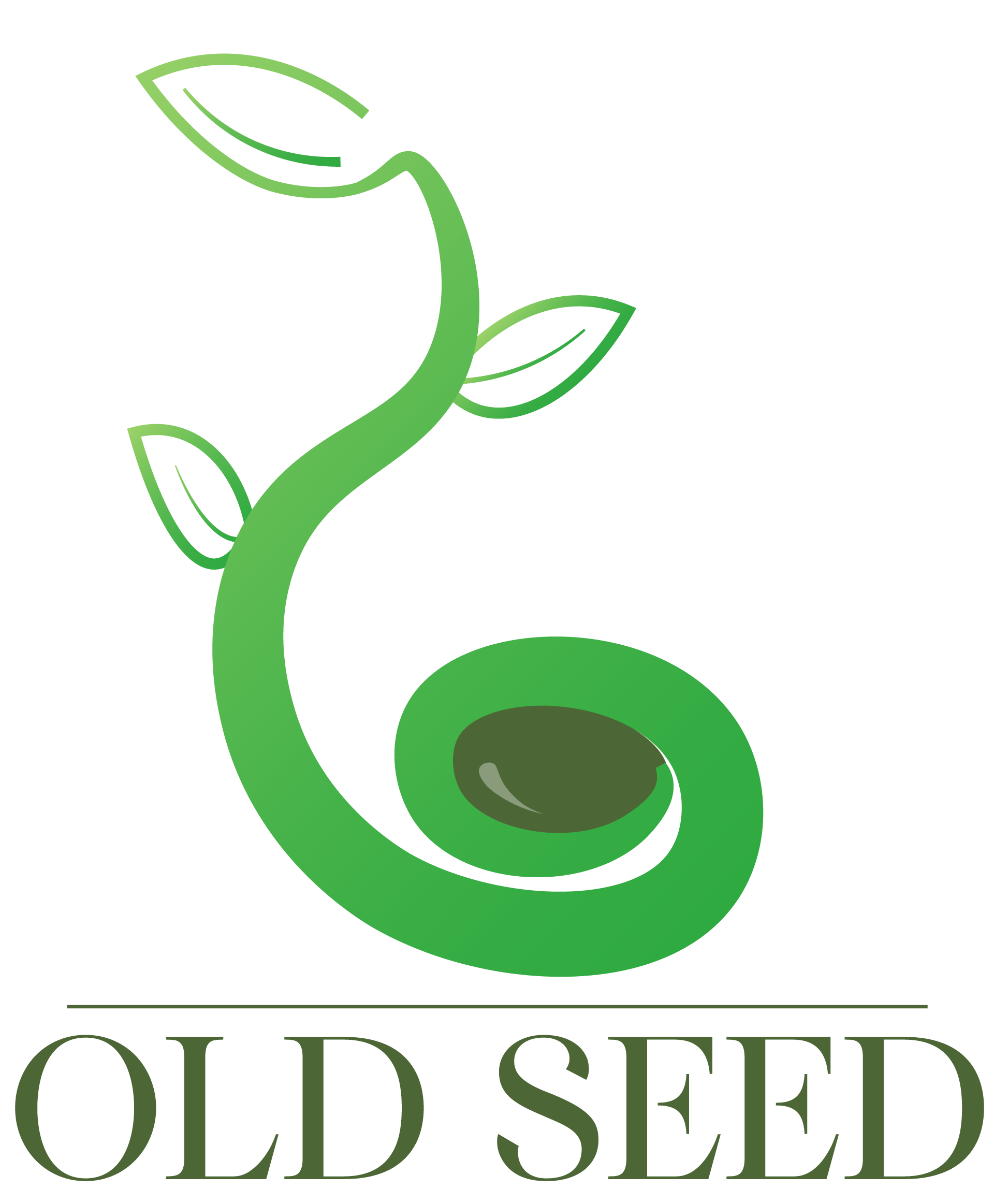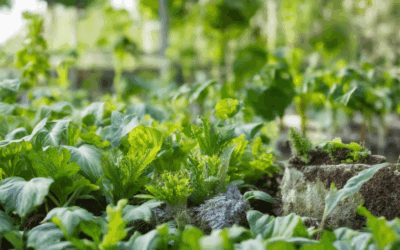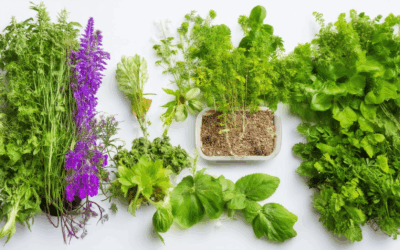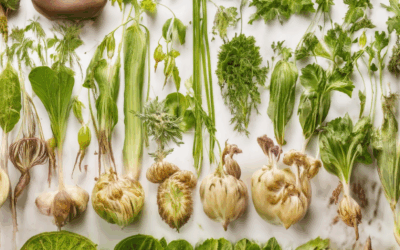When it comes to organic farming, the quality of seeds plays a pivotal role in achieving successful growth and harvest. For both novice and seasoned gardeners, farmers, and food enthusiasts, understanding the intricacies of organic seed sourcing is essential. High-quality seeds are the foundation of thriving plants, and sourcing them can feel like navigating a maze of options. Whether you’re seeking the best suppliers, exploring the top companies, or uncovering the controversial aspects of the industry, this guide offers a comprehensive exploration of organic seed sourcing. From certifications to controversies, we’ll walk you through everything you need to know to make informed decisions about your seed supplies. This article dives deep into the world of organic seeds, providing insights, resources, and expert advice to help you find the right suppliers and understand the complexities of the market. Stay tuned to discover how to choose reliable organic seed suppliers, the differences between major companies and cooperatives, and the impact of certifications on seed quality. Let’s embark on a journey to understand the heart of organic seed sourcing and how it shapes the future of sustainable agriculture.
Key Takeaways
– Dominant Seed Companies Control Half the Market: The global seed industry is dominated by a few large corporations, with Monsanto holding the largest share at 23%. Together, the top three companies account for nearly half of the market.
– Top Four Seed Companies: Bayer, Corteva, Syngenta (under ChemChina), and BASF are the major players, each specializing in different aspects of seed production and innovation.
– Support Local Farmers and Heirlooms: Independent seed banks and local farmers are crucial for biodiversity and sustainable agriculture, promoting traditional practices like heirloom gardening.
– Controversy Over Heirloom Seeds: While promoting heirloom varieties, questions arise about their impact on modern farming and food security, though they offer resilience against climate change.
– Investment in Research and Sustainability: Major companies focus on high-yield, disease-resistant crops while exploring sustainable agriculture solutions.
Where Do Organic Farmers Get Their Seeds?
Organic farmers typically obtain their seeds through several reliable channels, each aligned with the principles of sustainability and organic certification. Here’s a breakdown of the primary sources:
- Certified Organic Seed Suppliers : Many organic farmers purchase seeds from specialized suppliers who are certified by reputable organic accreditation bodies. Companies like Seeds of Change and Johnny’s Selected Seeds are well-known for providing high-quality, organically grown seeds.
- Dual-Certified Suppliers : Some seed companies offer both organic and conventional seeds. These suppliers often have separate streams for organic production, ensuring that farmers can access seeds free from synthetic inputs while maintaining operational continuity.
- On-Farm Seed Production : A significant number of organic farmers produce their own seeds. This practice allows them to maintain control over seed quality and adapt to specific growing conditions. Seed-saving techniques and crop rotation are common methods employed.
- Cooperatives and Farm Networks : Organic farmers frequently collaborate through cooperatives to bulk purchase seeds at reduced rates, ensuring access to affordable, high-quality organic seeds.
- Seed Libraries and Swaps : In some communities, farmers participate in seed libraries or local swaps, sharing seeds among themselves to promote biodiversity and reduce dependency on external suppliers.
Each method ensures that organic farmers have access to seeds that meet rigorous organic standards, supporting both environmental health and sustainable agriculture.
What is the best place to buy organic seeds online?
When searching for the best place to buy organic seeds online, consider factors like variety, pricing, delivery options, and customer support. Here are some top recommendations:
- Old Seed – A trusted platform specializing in heirloom and non-GMO seeds. Their mission focuses on sustainable agriculture and traditional gardening methods, making them a great choice for eco-conscious gardeners.
- Seeds Now – Offers a wide range of organic seeds with competitive pricing and fast shipping. They emphasize non-GMO and heirloom varieties, catering to diverse gardening needs.
- Botanical Garden Supply – Provides high-quality organic seeds and plants, often with detailed growing guides. Their focus on sustainability aligns with many gardeners’ values.
- Peaceful Valley Farm Supply – Known for their extensive selection of organic seeds and gardening supplies. They prioritize biodiversity and offer educational resources for sustainable farming.
- Greenhouse Seed Co – Specializes in rare and heirloom seeds, offering a unique selection. Their commitment to preserving genetic diversity makes them a standout choice.
Each of these platforms offers unique benefits, so your best option depends on your specific needs and preferences. Be sure to explore their websites to find the perfect fit for your gardening goals.
For more information on selecting the right seeds and gardening techniques, visit our Gardening Tips section.
What is Seed Sourcing?
Seed sourcing refers to the process of collecting and gathering seeds from various plants, trees, and organisms to propagate and grow them in different environments. This practice is essential for maintaining biodiversity, supporting ecological balance, and ensuring the availability of genetic material for future generations.
Types of Seed Sources
- Seed Trees: These are individual trees from which seeds are collected. They are often found in natural forests or controlled plantations.
- Seed Stands: These are groups of trees or plants grown specifically for seed collection. They are maintained to ensure consistent quality and quantity of seeds.
- Seed Production Areas: These are designated regions where seeds are cultivated under controlled conditions to meet specific demands.
- Seed Orchards: These are specialized tree plantations where seeds are harvested for commercial purposes.
At Old Seed, we understand the importance of sustainable seed sourcing. We work with trusted partners and local communities to ensure that the seeds we offer are ethically sourced and responsibly produced. Our mission is to promote heirloom gardening and sustainable agriculture, preserving traditional planting methods while contributing to modern farming practices.
We also recognize the role of competitors in the market, such as Heirloom Seeds and Seeds of Change . While we focus on our own brand, we acknowledge the contributions of these organizations to the field of seed sourcing and biodiversity conservation.
Join us in our journey to create a greener future through sustainable seed sourcing and heirloom gardening. Explore our collection today and take the first step toward growing your own organic garden!
Who is the biggest seed supplier?
The global seed industry is dominated by a few large corporations that control significant portions of the market. Among these, the top three companies—Monsanto, DuPont, and Syngenta—account for nearly half of the proprietary seed market. Monsanto alone holds approximately 23% of the global proprietary seed market, making it the largest player.
These companies play a crucial role in supplying seeds for agriculture, particularly for genetically modified crops. Their dominance is evident in their combined market share of over 47%, which underscores their influence in the industry. While there are numerous smaller competitors, these three firms remain the most prominent due to their extensive research and development capabilities, as well as their distribution networks.
It’s important to support independent seed banks and local farmers to promote biodiversity and sustainable agriculture. At Old Seed, we advocate for heirloom gardening and traditional practices that preserve agricultural diversity for future generations.
The Four Major Seed Companies
The global seed industry is dominated by a few large corporations that play significant roles in the production and distribution of agricultural seeds. These companies have expanded their operations through mergers, acquisitions, and partnerships, leading to increased market concentration. Below is a list of the four major seed companies:
- Bayer
- Corteva
- Syngenta (part of ChemChina)
- BASF
These companies collectively control a substantial portion of the seed and agricultural chemical markets. Each of them has a strong presence worldwide, investing heavily in research and development to produce high-yield and disease-resistant crops.
Bayer, for instance, has been a leader in seed technology, particularly in traits related to herbicides and insect resistance. Corteva, formerly part of DowDuPont, focuses on seed treatments and pest control solutions. Syngenta, now under ChemChina, is known for its expertise in fungicides and herbicides. BASF, meanwhile, emphasizes sustainable agriculture and innovative seed solutions.
While these companies dominate the market, it’s important to support smaller, independent seed banks and local farmers who preserve heirloom and organic seed varieties. At Old Seed, we advocate for ethical practices in agriculture, recognizing the importance of biodiversity and sustainable farming methods.
For more information about these companies and their impact on the seed industry, visit their official websites:
Bayer
Corteva
Syngenta
BASF
About Our Controversial Seed Company
We at Old Seed are proud to be a leading provider of heirloom and organic seeds, dedicated to preserving traditional farming practices and promoting sustainable agriculture. Over the years, our company has become known for our commitment to eco-conscious gardening and our efforts to protect biodiversity through heirloom seed preservation.
A Brief History
Founded with the vision of fostering a deeper connection between people and nature, Old Seed has grown into a trusted name in the gardening community. Our journey began with a passion for heirloom varieties, which have been passed down through generations and are vital to local ecosystems. Today, we continue to work tirelessly to make these rare seeds accessible to gardeners everywhere.
Controversies and Debates
While we take pride in our sustainable practices, it’s important to acknowledge the discussions and debates our work has sparked. Some critics argue that the promotion of heirloom seeds may divert attention from modern, high-yield varieties, potentially impacting food security. However, we believe that diverse crop varieties offer resilience against climate change and pests, making them a valuable component of sustainable agriculture.
Additionally, our advocacy for organic farming methods has led to questions about scalability and productivity. We recognize these concerns and are committed to working with farmers and researchers to explore balanced approaches that honor both tradition and progress.
Competitors and Market Position
In the competitive landscape of seed companies, we position ourselves as a beacon of transparency and ethical practices. While there are other reputable companies in the market, such as Seed Savers and heirloom seed banks, we differentiate ourselves through our focus on community engagement and educational resources.
We encourage visitors to explore our website for tips on growing heirloom seeds and to learn more about our mission. For those interested in comparable options, we recommend visiting [Seed Savers](https://www.seedsavers.com/) and [Heirloom Seed Bank](https://heirloomseeds.com/) to discover alternative resources.
Conclusion
At Old Seed, we remain dedicated to our mission of promoting sustainable agriculture and preserving heritage seeds. While our approach may spark debate, we believe it is essential for fostering a healthier relationship between people and the planet. We invite you to join us in our journey toward a greener future, one seed at a time.
Visit our website at [Old Seed](https://oldseed.org/) to explore our catalog and learn more about our initiatives.








0 Comments